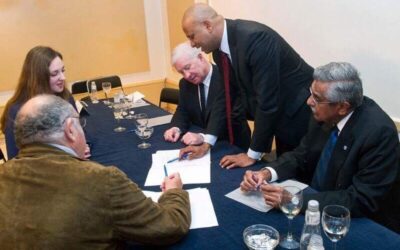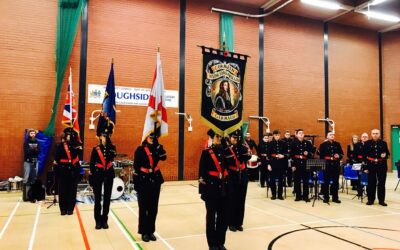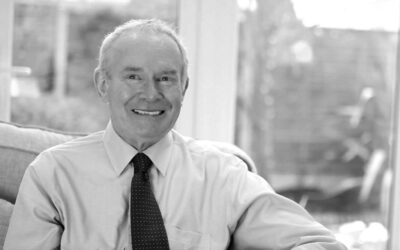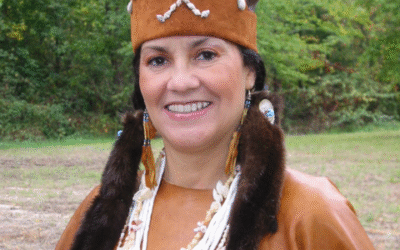In 2024, the Fellowship Programme continued to thrive, highlighted by our exceptional Fellows and notable residentials in Dublin and Oxford. In April, we proudly celebrated the graduation of the Class of 2024 at Hillsborough Castle. Following a well-deserved break, we...
Posts from category:

Digital DNA: Technology, social cohesion and peace advocacy
We are delighted to host a session on "Technology, social cohesion and peace advocacy" during Digital DNA. In this digital age, technology is altering how we engage with the world, offering new avenues for social change. In this session we will explore how technology...
A Giant’s Cause: Solutions for Brexit | 11 May | QUB
The future relationship between the United Kingdom and the European Union remains open and one of the options floated has been for the UK to join the European Economic Area (EEA) on the EFTA side. The EEA extends the EU’s Single Market to three EFTA countries: Norway,...
ETA disarmament: CDPB’s Director Chris Maccabe among the International Verification Commission members
The International Verification Commission (IVC) was established in 2011 to verify Euskadi Ta Askatasuna’s (ETA) declaration of a definitive end of violence. The Commission members include Chris Maccabe, former Political Director of the Northern Ireland Office and...
Music Unite Culture Night
An eclectic mix of musicians gathered at the Loughside Community Centre, on the Shore Road in North Belfast to entertain an audience of over 400 people with Music Unite’s night of culture. The event was the culmination of a yearlong project facilitated by the Centre...
Statement from Lord Alderdice on the death of Martin McGuinness
Statement from Lord Alderdice on the death of Martin McGuinness Speaking of his sadness on hearing of the death of Martin McGuinness and sending his condolences to his family circle, John, Lord Alderdice described him as “a remarkable leader, an excellent colleague,...
Healing the wounds of Britain’s relationship with the First Americans
Lord Alderdice invites you to the talk Healing the wounds of Britain’s relationship with the First Americans with Chief Anne Richardson Wednesday, 22 March 2017 from 6.30pm to 8pm Committee Room 1, House of Lords, London SW1A 0AA Please register at...





